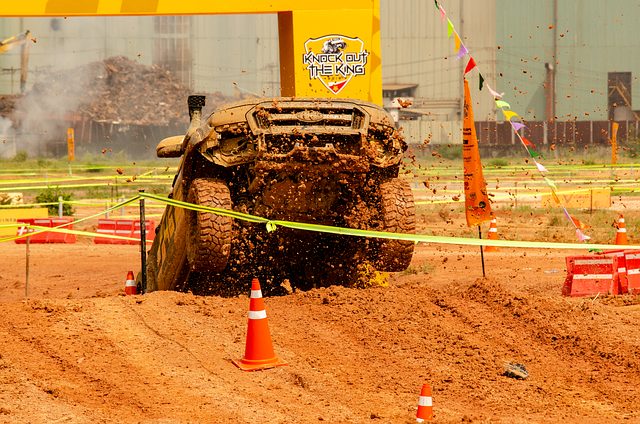Rock rails, critical safety features for fleet trucks in challenging conditions, protect against rollovers and side-impact collisions by absorbing impact forces. Regular fleet truck tire rotation in Brownsville, alongside well-maintained rock rails, minimizes damage and enhances fleet efficiency. Effective tire rotation ensures even wear patterns, preventing damage to these essential structures. Strategic implementation of rock rails by local authorities has improved road safety, leading to cost savings and better conditions in Brownsville's trucking sector.
Rock rails, an often-overlooked safety feature, are a critical component for fleet trucks navigating challenging terrain. This article delves into the significance of rock rails, exploring their essential role in protecting vehicles and drivers from damaging encounters with loose debris. We examine the interplay between tire rotation, a vital maintenance practice, and the preservation of rock rail integrity. Through a case study focusing on Brownsville’s trucking industry, we demonstrate how these safety measures can significantly enhance road safety for fleet trucks and their operators.
- Understanding Rock Rails: A Essential Safety Feature for Fleet Trucks
- The Role of Tire Rotation in Maintaining Rock Rail Integrity
- Case Study: Effectiveness of Rock Rails in Brownsville's Trucking Industry
Understanding Rock Rails: A Essential Safety Feature for Fleet Trucks

Rock rails are an essential safety feature for fleet trucks, particularly those operating in rugged terrain or areas prone to road debris. These robust metal barriers, strategically placed along the sides of roads and highways, serve as a last line of defense against potential rollovers and side-impact collisions. By absorbing and deflecting the force of impact, rock rails play a crucial role in protecting both the vehicle and its occupants.
In the event of a tire failure or sudden evasive maneuver, rock rails prevent the truck from veering off the road or colliding with oncoming traffic. Regular fleet truck tire rotation is essential to maintain optimal performance and safety, but even with proper maintenance, rock rails provide an extra layer of protection. For example, in the bustling urban areas of Brownsville, where fleets navigate busy highways and narrow streets, well-maintained rock rails can significantly reduce the risk of accidents and damage, thereby enhancing overall fleet safety and operational efficiency.
The Role of Tire Rotation in Maintaining Rock Rail Integrity

Maintaining rock rails, critical safety features on roadsides designed to prevent vehicles from veering off the road, requires a multifaceted approach. One often overlooked yet crucial element is regular fleet truck tire rotation in Brownsville. Efficient tire rotation ensures even wear patterns across all tires, which is essential for preserving the integrity of rock rails. When tires are not rotated regularly, overinflation or underinflation can occur, leading to uneven tread wear and potential damage that weakens these vital safety structures.
For fleet operators in Brownsville, implementing a structured tire rotation schedule offers numerous benefits. By rotating trucks’ tires according to manufacturer recommendations and driving conditions, fleet managers can prolong the lifespan of each tire, reduce the risk of sudden failures while on the road, and ultimately contribute to the continued effectiveness of rock rails along the city’s highways and byways.
Case Study: Effectiveness of Rock Rails in Brownsville's Trucking Industry

In the dynamic landscape of the trucking industry, safety and operational efficiency go hand in hand. A compelling case study exemplifies this in Brownsville, a bustling hub for fleet operations and frequent transit point for goods. The implementation of rock rails has significantly enhanced road safety, particularly regarding tire-related incidents. By strategically placing these robust barriers along high-risk areas, the local authority in Brownsville has witnessed a notable decrease in fleet truck tire rotations, leading to reduced costs and improved road conditions.
This initiative has proven particularly effective for the region’s trucking businesses, which often operate under stringent deadlines and budgets. The rock rails serve as a reliable defense against tire blowouts and other roadside hazards, ensuring that trucks can maintain their schedules without costly diversions or repairs. In turn, this has fostered a more sustainable and economical operational environment, solidifying the role of rock rails as a game-changer in Brownsville’s trucking sector.
Rock rails prove to be an indispensable safety feature for fleet trucks, particularly in challenging terrains like Brownsville’s trucking industry. Regular tire rotation plays a pivotal role in maintaining these crucial barriers against roadside hazards. By examining real-world case studies, we see the tangible impact of rock rails on road safety and operational efficiency. For fleet managers in Brownsville and beyond, prioritizing rock rail maintenance is not just recommended—it’s essential for safeguarding assets and ensuring smooth operations.
